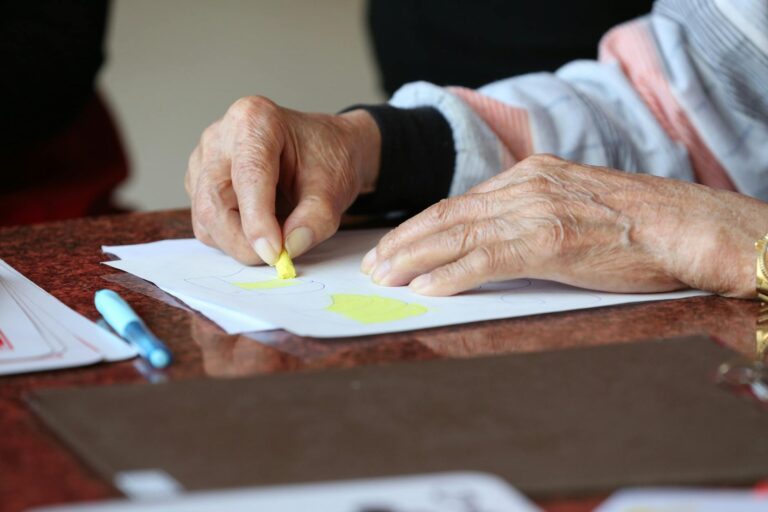Taking care of a loved one with Alzheimer’s disease can be both rewarding and challenging. As a caregiver, you are responsible for the physical, emotional, and cognitive well-being of your loved one. But in the midst of all the responsibilities, it is easy to forget about your own well-being and neglect self-care. However, self-care is an essential aspect of being an Alzheimer’s caregiver. It not only helps you to manage the stress and demands of caregiving but also plays a crucial role in improving the overall quality of care you provide. In this article, we will explore the importance of self-care for Alzheimer’s caregivers and offer practical tips on how to incorporate it into your daily routine.
What is self-care?
Self-care refers to the practice of taking care of your own physical, emotional, and mental health. It involves activities that promote relaxation, reduce stress, and enhance overall well-being. Self-care is not selfish or indulgent; it is a necessary part of maintaining a healthy lifestyle. As an Alzheimer’s caregiver, it can be easy to put your own needs aside and focus solely on your loved one’s care. However, neglecting self-care can lead to burnout, exhaustion, and even depression. Therefore, it is crucial to prioritize your own well-being as much as you prioritize your loved one’s care.
The importance of self-care for Alzheimer’s caregivers
1. Reduces stress
Caring for someone with Alzheimer’s disease can be emotionally and physically draining. It is a constant state of worry, and the demands can be overwhelming. The stress levels associated with caregiving can lead to various health problems such as high blood pressure, heart disease, and depression. By practicing self-care, you can reduce stress levels and maintain a healthy mind and body.
2. Improves physical health
Taking care of someone with Alzheimer’s disease involves a lot of physical tasks, such as assisting with daily activities, helping with mobility, and managing medications. As a caregiver, it is essential to maintain your physical health to be able to perform these tasks effectively. Engaging in activities like exercise, eating a healthy diet, and getting enough rest can help you maintain your physical health.
3. Enhances mental well-being
Caring for someone with Alzheimer’s disease can take a toll on your mental health. It can be emotionally draining to witness your loved one’s decline and deal with the challenges of caregiving. By incorporating self-care practices into your routine, you can reduce stress and improve your mental well-being. Activities like meditation, journaling, and spending time outdoors can help you relax and maintain a positive mindset.
4. Increases energy levels
Caregiving can be physically demanding and exhausting, leaving you with little energy for yourself. However, by practicing self-care, you can recharge and boost your energy levels. Doing activities that you enjoy, spending time with friends and family, and getting enough rest can all contribute to increased energy levels.
5. Better quality of care
As a caregiver, you are responsible for providing the best possible care for your loved one. However, if you are burnt out or exhausted, it can affect the quality of care you provide. Taking care of yourself through self-care practices can help you stay mentally and physically fit, allowing you to provide better care for your loved one.
Practical tips for self-care
1. Set boundaries
One of the most crucial aspects of self-care is setting boundaries. Know your limits and do not be afraid to say no when you feel overwhelmed. It is okay to ask for help or take breaks when needed.
2. Take care of your physical health
Make time for regular exercise and eat a healthy diet. It is also essential to get enough sleep to recharge and have the energy to take care of your loved one.
3. Practice relaxation techniques
Find activities that help you relax and reduce stress, such as yoga, meditation, or deep breathing exercises. These practices can help you stay calm and centered during challenging times.
4. Connect with others
Caregiving can be isolating, so it is essential to stay connected with friends and family. Make time for social activities or join a support group for caregivers. Talking to others who are going through a similar experience can be therapeutic.
5. Take breaks
It is crucial to take breaks from caregiving to recharge and avoid burnout. Ask other family members or friends to take over for a few hours so you can have some time for yourself.
In conclusion, self-care is not a luxury but a necessity for Alzheimer’s caregivers. By taking care of your own physical, emotional, and mental well-being, you can improve the quality of care you provide for your loved one. Remember to set boundaries, prioritize your physical health, practice relaxation techniques, connect with others, and take breaks when needed. By incorporating self-care into your daily routine, you can better manage the demands of caregiving and maintain a healthy mind and body.





